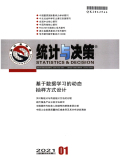统计与决策2024,Vol.40Issue(15):40-45,6.DOI:10.13546/j.cnki.tjyjc.2024.15.007
旅游环境资源经济核算的理论方法与研究展望
Theoretical Methods and Research Prospects of Economic Accounting of Tourism Environmental Resources
摘要
Abstract
As public awareness of environmental protection increases,the environmental degradation and ecosystem damage caused by the prosperity of tourism have attracted extensive attention from the academic community,among which many research-es focus on the fundamental task of economic accounting of tourism environment and resources.This paper reviews key theories and research methods related to assessing the economic value of tourism environment and resources over the past two decades.The research findings are as follows:(1)The theory of stated preference has been widely used in evaluating environmental resource economic value,but in recent years,meta-analysis based on utility transfer theory has emerged as a new research trend.(2)The random utility maximization theory and double boundary dichotomous choice model are the main methods for evaluating tourism environmental resource economic value,but in recent years,many scholars have begun to pay attention to the effectiveness of this method.(3)New technologies,such as big data and satellite remote sensing,have gradually attracted attention,but researchers should also pay attention to the impact of subjects'"free rider"psychology on research conclusions.关键词
旅游环境资源/经济核算/关键理论/方法论演进Key words
tourism environmental resources/economic accounting/key theories/methodology evolution分类
管理科学引用本文复制引用
陈小鹏,张凯壮,张洁..旅游环境资源经济核算的理论方法与研究展望[J].统计与决策,2024,40(15):40-45,6.基金项目
桂林旅游学院重点研究基金(2021A01) (2021A01)

